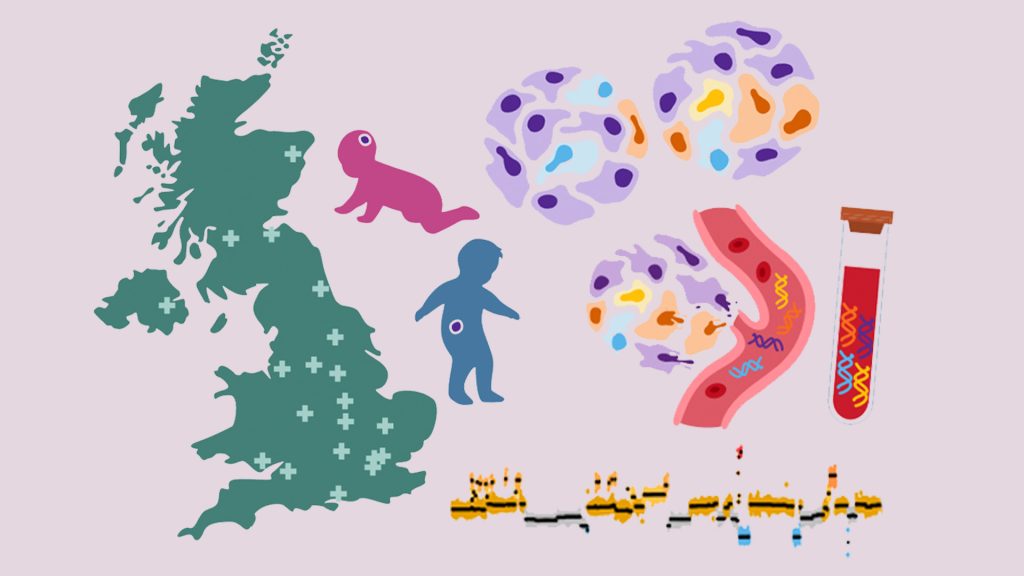How APOE4 affects human brain in Alzheimer’s disease

Apolipoprotein E (APOE) is a small protein encoded by the APOE gene regulating lipid homeostasis in mammals. The e4 variant of the APOE gene (APOE4) is associated with an increased risk of developing Alzheimer’s disease (AD) in mammals. A Nature study co-authored by Jose Davila-Velderrain reveals cell-type specific effects of APOE4 on cholesterol metabolism and trafficking, myelination, and learning and memory in mouse and human brains.
Alzheimer’s disease (AD) is a neurodegenerative disease leading to progressive impairment of brain functions and memory loss. Environmental and genetic risk factors are associated with AD development, with APOE4 being the strongest known genetic risk factor. APOE4 promotes lipid droplet formation and cholesterol accumulation in astrocytes, specialised cells that supply neurons with nutrients and support brain structure, among other functions. However, how APOE4-induced lipid dysregulation and cholesterol accumulation affects other cell types, ultimately impacting memory and learning in the AD brain, is not completely understood.
Jose Davila-Velderrain, Group Leader at the Neurogenomics Research Centre at Human Technopole, and colleagues at the Massachusetts Institute of Technology (MIT) and the Broad Institute of MIT and Harvard led by Li-Huei Tsai, addressed these issues by performing single-nucleus RNA-sequencing (snRNA-seq) of post-mortem brains from 32 individuals belonging to the Religious Order Study and the Rush Memory and Aging Project (ROSMAP) who agreed to donate their brain after death. By comparing cells from APOE4 versus APOE3 (control) subjects, while controlling for AD pathology, the researchers found dysregulation of almost 500 molecular pathways (for example, DNA damage, inflammation, energy production, metabolism, and cellular stress) in six different cell types of APOE4 brains. Transcriptomic analysis revealed that cholesterol biosynthesis was upregulated in APOE4 oligodendrocytes, the cells responsible for myelin deposition around the nerve cell axons in the central nervous system. Myelin is a cholesterol-rich substance that insulates the neuron axons and increases the rate at which electrical impulses are propagated. Increased levels of cholesterol and intracellular localisation were also assessed by mass spectrometry-based lipidomic and imaging analyses of frozen post-mortem brains, respectively. The researchers consistently observed reduced axonal myelination in APOE4 individuals as compared with the APOE3. Similar results were obtained in transgenic mice expressing human APOE4.
To validate these findings at the cellular level, Davila-Velderrain and colleagues used CRISPR-Cas9 genome editing to convert induced pluripotent stem cells (iPS) derived from neurotypical (APOE3/3) individuals and APOE4/4 AD patients into APOE4/4iPS and APOE3/3iPS, respectively. These cells were then differentiated into oligodendrocytes and, just like the brain tissues, APOE4/4 oligodendrocytes showed increased intracellular accumulation of lipid droplets and cholesterol vis-à-vis reduced trafficking of cholesterol to the plasma membrane. In addition, neurons co-cultured with APOE4/4 oligodendrocytes in a 3D experimental system showed reduced axonal myelination compared to those grown with APOE3/3 oligodendrocytes. Importantly, the myelination defects observed in APOE4/4 oligodendrocyte-neurons 3D co-culture could be rescued by facilitating cholesterol transport with cyclodextrin, a drug currently used for the treatment of rare lysosomal lipid storage diseases. Consistently, cyclodextrin reduced cholesterol accumulation in oligodendrocytes, promoted axonal myelination, and improved memory and learning in APOE4/4 transgenic mice.
In summary, Davila-Velderrain et al. causally link for the first time APOE4 with cholesterol transport and localization in oligodendrocytes, myelination impairment, and cognitive performance. Furthermore, the researchers provide a single-cell atlas of the transcriptional effects of APOE4 in human brains, thus paving the way for the development of novel therapeutic strategies for AD.




